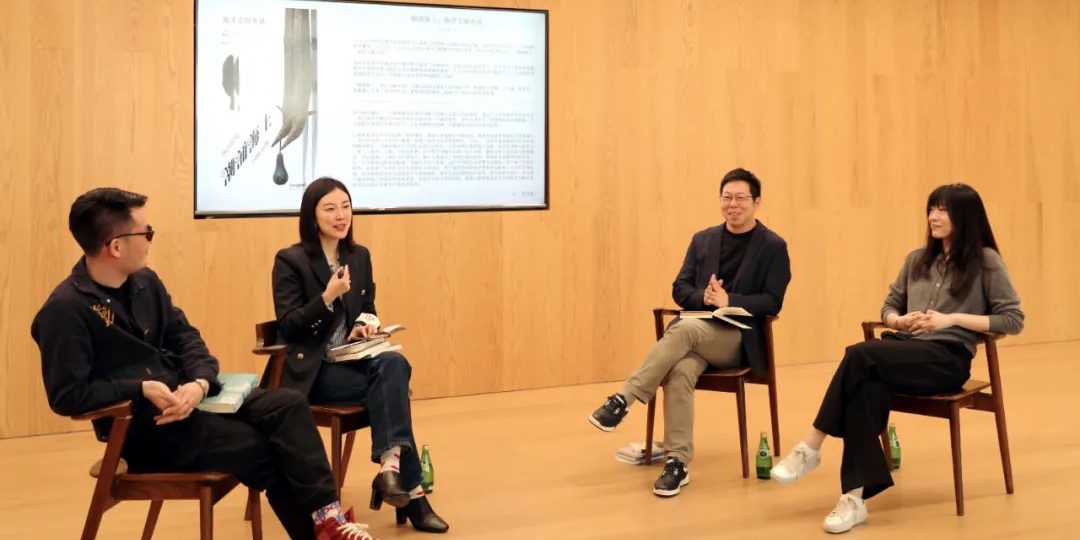Longlati Public Program | Tide Surging on the Sea
Longlati has always been devoted to examining the interplay between cultural landscapes and political ecology, as well as actively promoting the variety and viability of contemporary art. On May 12th, Longlati will collaborate with the Tag Art Museum to present a public educational event called “Tide Surging on the Sea: Reading Workshop of Marine Literature.”
The Tag Art Museum is currently hosting its inaugural exhibit on marine philosophy titled “Returning to the Sea,” which aims to offer a deep dive into the sea and reflect on the unique perspectives and sensory experiences of human-ocean connections. In today’s context, where discussions on the ocean have become increasingly urgent and significant amid numerous global challenges, it offers pathways for re-examining ourselves and our environment.
The public event entitled “Tide Surging on the Sea: Reading Workshop of Marine Literature” will be curated by Zhu Yujie and will feature guest speakers Hu Sang, Wang Tianxin, and Zhang Yibei. Through academic workshops, it seeks to explore the oceans vast possibilities and wisdom.
Tide Surging on the Sea: Reading Workshop of Marine Literature
The two major marine cities—Shanghai and Qingdao—engage in deep exchanges and joint explorations on marine topics. Combining art and marine philosophy, they elevate the study and discussion of marine literature to a whole new level. The unique language and perspective of art not only enriches our comprehension of marine science, culture, and education, but also inspires profound reflections on the ocean. Shanghai and Qingdao, two of China’s major maritime cities, share numerous geographic similarities. As a place of multiculturalism, they embody the typical characteristics of maritime culture, and are important ports for import and export trade. In the late 19th and early 20th centuries, both cities became the focal point of foreign powers due to their strategic locations and port facilities. According to the “Shanghai Biography,” missionaries at that time looked at the harbours of different cities in China and found that Shanghai had the most ships, so they chose Shanghai to open a port. This port became a concession that many countries occupied. Qingdao was once a German concession, which also affected its urban culture and development. These shared historical backgrounds not only shaped the marine characteristics of both cities but also enhanced their roles as centers of cultural exchange. The historical backgrounds of these two cities have influenced their development trajectories and provided rich material for cultural exchange between the two places. The characteristics of marine culture, such as openness, diversity, and inclusiveness, are particularly reflected and promoted in these two cities. The intertwining of history and culture endows Shanghai and Qingdao with irreplaceable roles in today’s joint reading of marine literature and cultural exchange.
Period: May 12, 2024 13:00-16:00
Venue: Longlati common area (Wen’an Rd., Jing’an district, Shanghai)
Discussion Outline
In the face of the numerous crises that the oceans are currently experiencing, it has become particularly important to seek new solutions from the ocean. Therefore, we need to go back to the ocean and explore its many possibilities and wisdom. At the same time, the ocean has always been an endless source of inspiration for many artists, providing them with creative ideas and motivation. Artists can express their admiration and deep thoughts about the ocean through their works because of the grandeur and mystery of this natural setting.
1. When did you start paying attention to ocean-related topics, and what inspired you to explore this field? (When and how did your initial interest in ocean-related topics form, and what were the motivations and sources of inspiration behind it?)
2. Which ocean-themed books and authors have had the greatest impact on you? (Key books and authors you have read, especially those that have significantly influenced your artistic concepts and creative style.)
3. What ocean literature have you read that has had a significant impact on your artistic creation? (Ocean philosophy, psychology, ecology, exploration history, marine technology, etc., and how these themes are reflected in your artwork.)
4. Could you introduce your works related to the ocean in “Return to the Sea” or other ocean-themed creations? (Inspired by ocean literature, how have you incorporated these elements into your creations?)
5. What discussions do you hope to provoke through your artistic creations, and has this process influenced your view of the ocean?
6. Which international artists, groups, or art institutions conducting ocean-related projects are worth paying attention to?
7. The ocean holds a special place in many cultures, closely linked to the traditions and lifestyles of various peoples and communities. Discussing the ocean is not only a scientific need but also a respect and protection of human cultural diversity. In the face of today’s various issues, why do you think it is important to discuss the ocean now?
Host
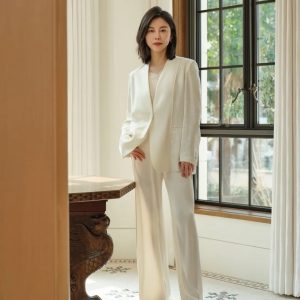
Zhu Yujie is a writer, curator, and cultural scholar. She graduated from Central Saint Martins in the UK with a degree in Art Curation and Criticism and is currently a Ph.D. candidate in Art Philosophy at Fudan University. She has curated contemporary art exhibitions such as “A Room of One’s Own II,” “Metaphor and Gaze,” “Future Exodus,” “Flexibility Carries,” and “The Interface of Janus,” and was nominated for the Artist Award at the 2021 Arles Photography Festival.
Guest
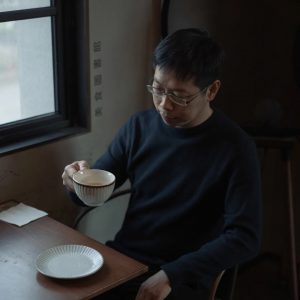
Hu Sang,Poet.Chinese translator of W.H.Auden, Robert Lowell, Czesław Miłosz and Wisława Szymborska. Associate professor at Tongji University in Shanghai.
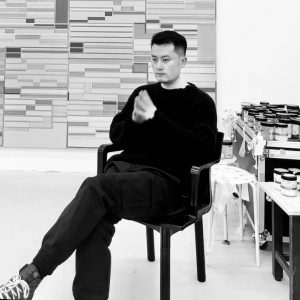
Wang Tianxin, born in 1986, currently works and lives in Shanghai. His artistic expression spans installation, painting, video, and theatrical exhibitions. He excels in using media such as image reconstruction, intelligent algorithm editing systems, and automated theater machines to create large-scale interactive audiovisual installations. His work explores and contemplates the boundaries between media technology, electronic theater, and social sculpture, continually challenging the close connection between the individual and contemporary society. His works have been exhibited at the Shanghai Museum of Contemporary Art, Central Academy of Fine Arts Museum, Yicang Art Museum, Baolong Art Museum, Himalayas Art Museum, Baekseok University in South Korea, Kochi University in Japan, and the Korean Cultural Center.
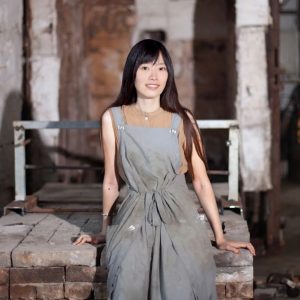
Zhang Yibei, born in 1992 in Daqing, Heilongjiang Province, currently works and lives in Beijing.
Zhang Yibei’s work primarily explores the concept of materials (substances). Externally, his focus is on the composition of materials: for instance, silicone, glass, and chips are primarily composed of silicon elements, yet different molecular arrangements result in entirely different states. Internally, he is concerned with the “extension” of materials, comparing not only how artists use materials to create works but also how the characteristics of the materials shape the artist, making the artist an extension and reflection of those material properties.
